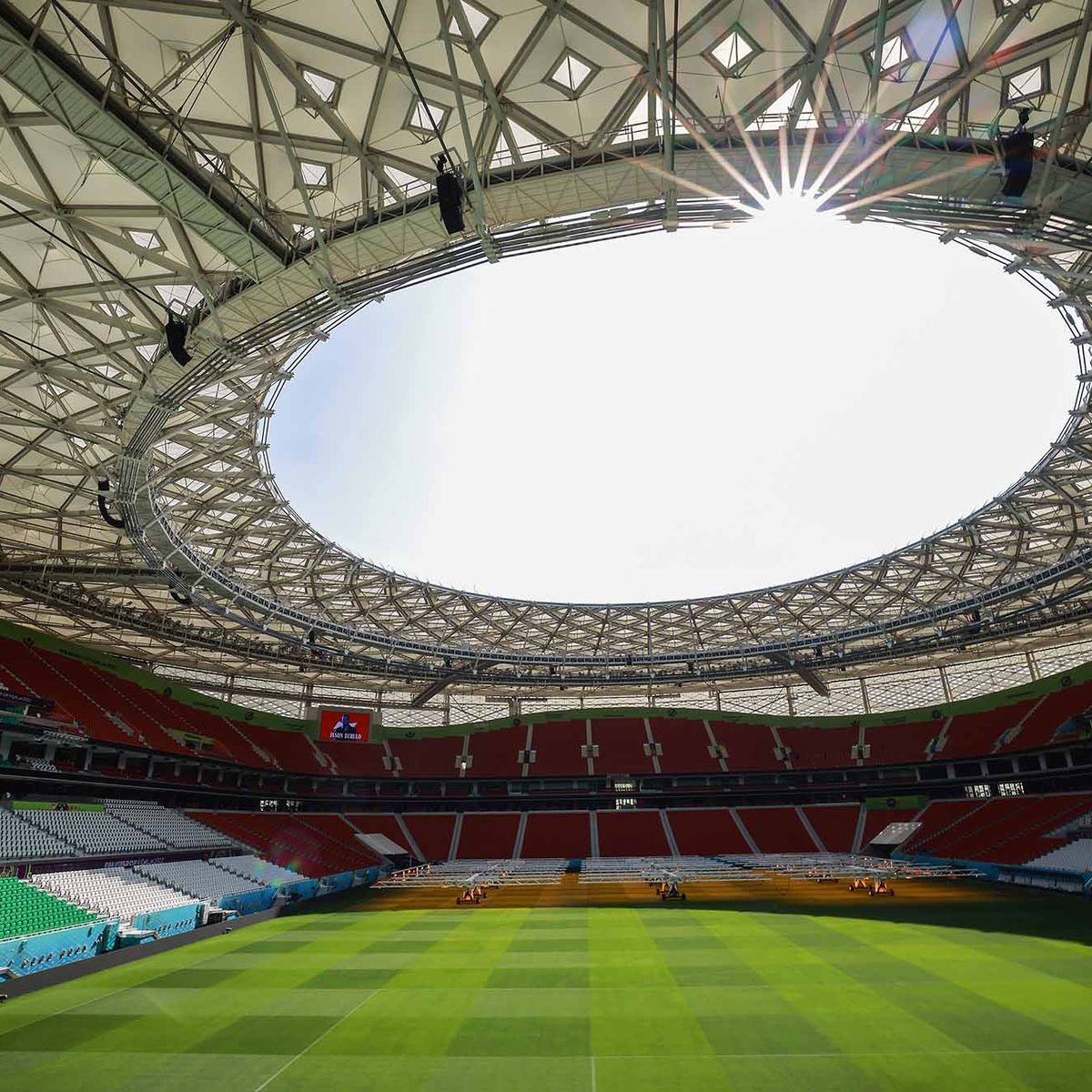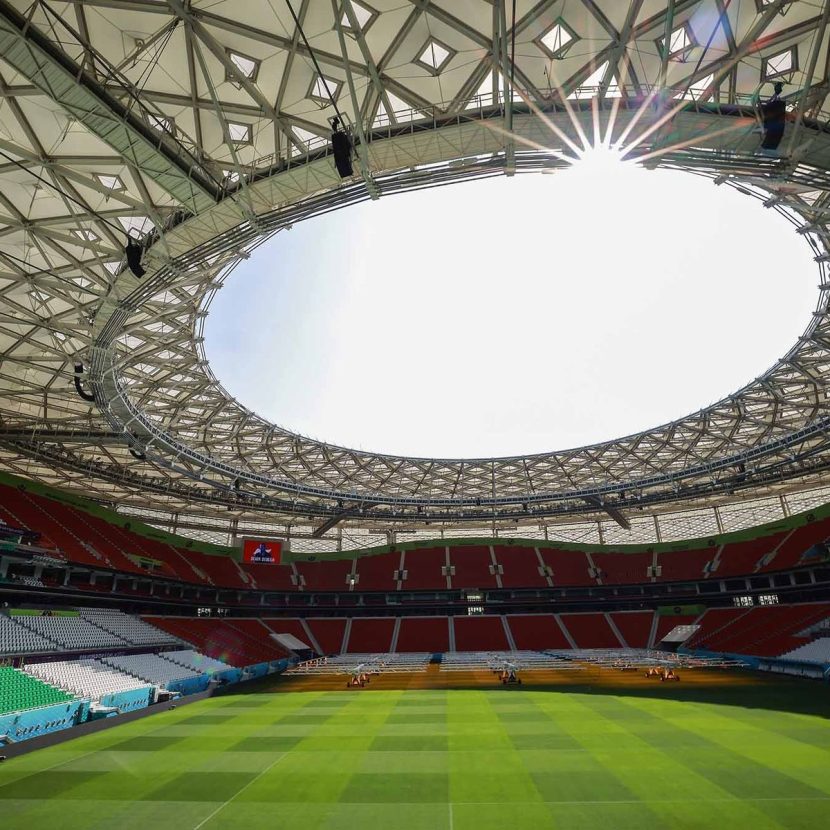New Delhi: Blind football, a unique and challenging variant of the world’s most popular sport, has gained significant momentum globally over the years. In India, it is growing rapidly, thanks to the unwavering commitment of players and coaches. Played on a 40×20 m field with five players, including a partially or totally sighted goalkeeper, each […]


New Delhi: Blind football, a unique and challenging variant of the world’s most popular sport, has gained significant momentum globally over the years. In India, it is growing rapidly, thanks to the unwavering commitment of players and coaches.
Played on a 40×20 m field with five players, including a partially or totally sighted goalkeeper, each side, the game lasting 30 minutes demands control and coordination from the players who rely on sound to deliver in the field.
The ball, especially made for these players, makes sound when it is kicked around. Additionally, teams can also have off-field guides to assist the players.
Governed by the International Blind Sports Federation (IBSA), the sport is played with modified rules of Fédération Internationale de Football Association (FIFA).
Free and Fair Journalism Will Continue to be Important in 2025
We need your support to sustain good journalism and empower us to deliver unhyphenated, hard-hitting news, insightful opinions, and ground reports.
At the forefront of this wave in Indian blind football is Sunil J. Mathew, the head coach of the Indian Blind Football Federation (IBFF). Since taking over in 2013, Matthew has been instrumental in developing the game, ensuring that blind football not only survives but thrives, both in terms of recognition and performance.
Sunil Matthew’s journey into blind football began in 2013 when he had a chance encounter with a visually impaired individual, who had played football before losing his sight. This simple yet powerful moment of watching the individual kick a ball sparked Matthew’s curiosity.
The Kochi-based director and coach of the Indian blind football team began learning about blind football—a five-a-side game where all players wear eye shades to ensure a level playing field. He reached out to the Indian Blind Sports Association in Delhi for support, and by 2016, he established the Indian Blind Football Federation.
Matthew’s coaching journey has been self-taught, relying heavily on online resources and lessons learned from international coaches. “I am not a professionally trained blind football coach; most of what I know, I learned through online resources and by observing international coaches,” he told ThePrint.
Under Matthew’s leadership, India’s men’s blind football team is ranked 14th globally, and the women’s team, launched in 2019, holds an impressive second position.
Players come from across the country such as Delhi, Dehradun, Kerala, Kolkata, Jodhpur, and Mumbai. The team has played in various tournaments such as the Five Nation Hong Kong Tournament in December 2014 and the Asian Championships Rio Paralympic Qualifiers at Tokyo, Japan in September 2015.
The IBFF will be hosting the 2025 IBSA Women’s Blind Football World Championship at Kochi from 2nd to 12 October next year. India will also be hosting the IBSA Men’s Nations Cup and the IBSA Men’s Asian-Oceania Championship Division 2 next year.
Meanwhile, in the ranks of India’s blind football players, one name stands out—Shivam Singh Negi.
Born in Ranswa village at Uttarakhand’s Pauri Garhwal, Shivam’s journey to becoming an inspirational player has been marked by hardships and triumphs.
From an early age, Shivam began losing his vision before he became visually impaired by the time he reached seventh grade. In 2011, a kidney surgery further altered his life, but he never let these setbacks define him.
“I was labeled as ‘unwanted’ and ‘unfortunate’ by some, but I chose to turn this adversity into motivation to excel,” Shivam recalled. “My inspiration in football comes from Ronaldo, whose skill and passion for the game deeply motivated me.”
“I draw inspiration from my friend Ashwini Kumar, who played a pivotal role in my journey,” Shivam said.
Ashwini had bought Shivam his first pair of football shoes, a gesture that proved instrumental in his pursuit of the sport.
Shivam’s rise in blind football has been meteoric. He made history in 2019 when he became the youngest Indian to score in blind football, leading India to victory against Malaysia in the Blind Football Asian Championship in Pattaya, Thailand.
“In 2019, I scored two goals for India during the Asian Blind Football Championship. These goals helped India secure a fifth-place finish in the tournament, and it remains a highlight in my journey,” Shivam recalled with pride.
Both Matthew and Shivam share a common passion for the sport. Matthew’s journey is one of a curious observer and an impassioned coach. Although not a professionally trained coach, he has poured his heart into the sport, learning the intricacies of blind football through observation and self-study.
His dedication to coaching has led to the establishment of India’s first blind football academy, a place where talented players from all over the country come to hone their skills. Matthew is not just a coach; he’s a mentor, a visionary who has seen the sport grow and evolve.
Shivam, on the other hand, is a player who embodies resilience and determination. His journey as a blind footballer started with overcoming personal struggles—losing his vision, undergoing a life-altering surgery, and battling societal stigma.
Yet, he has risen above these challenges, proving himself as a top-tier player on the world stage. “My current goal in football is to play well and represent India in the Paralympics. Our ultimate aim is to qualify for the 2028 Paralympic Games, and we are working hard to make that a reality,” Shivam said, reflecting the same relentless spirit that has driven him to where he is today.
Blind football demands a high level of patience, discipline, and empathy, Matthew asserted. “As a coach, you need to be courteous and attentive with your players, often explaining techniques through touch.”
For Shivam, the game is demanding, as players rely on sound rather than sight. “In blind football, players rely entirely on sound to navigate the game. The ball is specially designed with bells inside, allowing players to track its movement,” he explained.
Both India’s men and women team have set ambitious goals for the 2028 Los Angeles Paralympic Games. “Our immediate goal is to secure a podium finish in the upcoming championships and break into the top ten in world rankings for the men’s team,” Matthew asserted.
Vanshika Jaiswal is an intern with ThePrint
(Edited by Tony Rai)














